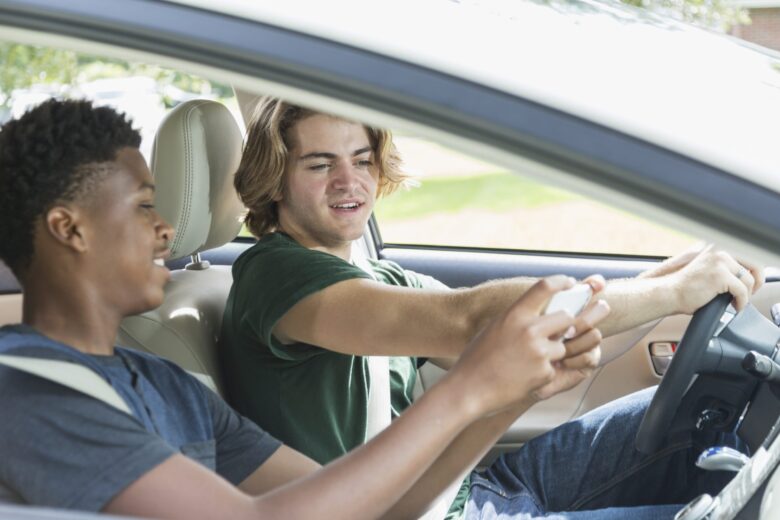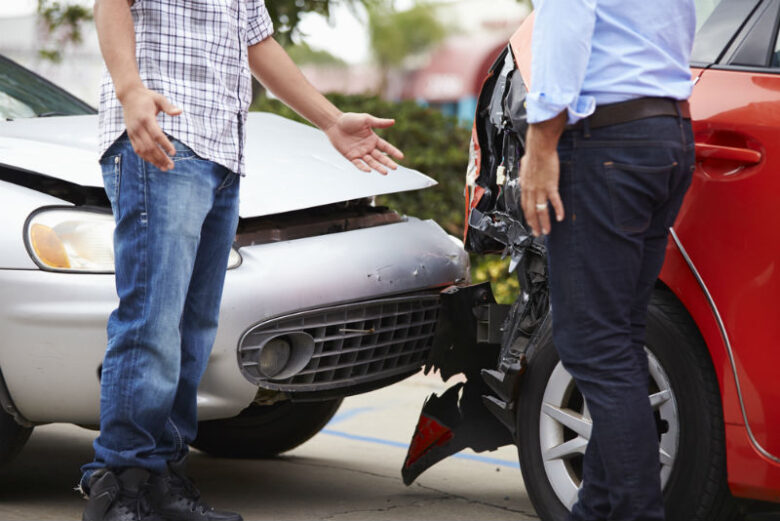Distracted driving occurs when you take your focus off the road. Whether it’s chatting on your phone, texting, eating, or fiddling with the stereo, each distraction can significantly increase your risk of an accident. Even talking to passengers or admiring the scenery can pull your attention away from essential driving tasks. These lapses not only compromise your safety but also that of others on the road.
Engaging in any activity that diverts your attention makes you less able to react to sudden changes in traffic or road conditions. Understanding its impacts could significantly enhance your driving habits and safety. If you find yourself in an accident due to such distractions, it may be wise to hire Houston personal injury lawyers.
Contents
Understanding Distracted Driving

Source: johnsongarcialaw.com
Distracted driving occurs when you engage in any activity that diverts your attention from the road. This distraction can often lead to cognitive overload, a condition where your brain is bombarded with more information than it can process efficiently. When you’re driving, your cognitive resources are ideally focused on responding to changes in traffic, road conditions, and navigating your route. However, if you’re distracted, these resources are split, potentially leading to a breakdown in perception.
Perception breakdown is another critical aspect of distracted driving. It refers to your reduced ability to perceive and interpret what’s happening on the road accurately. This can mean not noticing the brake lights of the car ahead, missing a traffic signal change, or failing to keep an eye on pedestrians crossing the street. Essentially, your ability to make safe driving decisions is compromised, increasing the risk of accidents.
Understanding that these phenomena aren’t just inconveniences but serious risks can help you prioritize your focus while driving. Remember, each time you take your mental focus off the road, even for a second, you’re potentially putting yourself and others in harm’s way.
Common Distractions for Drivers

Source: aaesqlaw.com
Now that you understand the risks, let’s explore some common distractions that drivers face on the road. First off, cell phones are a major culprit. Whether you’re texting, checking GPS, or picking the next song, each second your eyes are off the road matters. But it’s not just tech that pulls your focus. Chatting with passengers, especially in heated or emotional conversations, can equally divert your attention.
You mightn’t consider vehicle maintenance as a distraction, but imagine a scenario where your warning lights suddenly flash. You’re trying to figure out whether it’s your oil level or an engine issue, all while navigating traffic. This split attention can be risky.
Even scenic routes, as beautiful as they are, can lead you to take your eyes off the road. It’s easy to get caught up in the beauty of a lakeside view or a row of autumn-colored trees, forgetting to watch the car in front of you.
Lastly, eating or drinking while driving seems like a time-saver, but it can end up being a major distraction. Balancing a burger and a steering wheel isn’t just tricky; it’s a split-focus scenario that you don’t need. Always remember, maintaining focus while driving is crucial for your safety.
Impact on Road Safety

Source: avatarms.com
Driver distractions severely compromise road safety, increasing the likelihood of accidents. When you’re not fully attentive to the driving task, your reaction times slow down, and you’re less able to assess and respond to sudden hazards. This shift in driver behavior has prompted authorities to launch numerous safety campaigns aimed at educating the public about the dangers of distracted driving.
These campaigns often highlight how quickly a situation can deteriorate on the road when distractions are present. For instance, reading a text message might take your eyes off the road for approximately five seconds. At highway speeds, that’s akin to driving the length of a football field with your eyes closed. The risk isn’t worth it.
You’ve probably seen ads or received tips on how to minimize distractions. These are part of broader efforts to influence driver behavior positively. By understanding the severe impact distractions can have, you might think twice before picking up your phone or turning to adjust the radio while driving. Making these small changes in your driving habits can significantly enhance road safety for everyone involved. Remember, every distraction you avoid could be the difference between a normal drive home and a tragic one.
Legal Consequences
Facing legal consequences is a serious risk if you engage in distracted driving. If caught, you’re likely to face hefty fines, and in severe cases, even jail time. Depending on the gravity of the incident, you might find yourself with a suspended license, which could seriously hamper your mobility and independence.
Beyond the immediate legal repercussions, your insurance premiums will probably soar. After a distracted driving citation, insurers view you as a higher risk and adjust your rates accordingly. This increase can last for several years, significantly bumping up your overall driving costs.
Another crucial aspect to consider is employer liability. If you’re driving as part of your job, any accidents caused while you’re distracted can lead not only to personal legal consequences but also to repercussions for your employer. Companies can be held responsible for their employees’ actions during work hours, leading to lawsuits or hefty fines that might ultimately affect your job security and the company’s reputation.
It’s clear that the consequences of distracted driving extend well beyond potential accidents. They can ripple out, affecting your legal standing, financial situation, and professional life. Remember, when you’re behind the wheel, it’s vital to stay focused.
Preventative Measures

Source: blog.nemours.org
How can you prevent distracted driving to ensure safety on the roads?
First and foremost, investing in driver training plays a crucial role. These programs don’t just teach you the basics of driving; they also emphasize the dangers of distractions. You’ll learn practical strategies to maintain focus, regardless of what’s happening inside or outside the car.
Additionally, awareness campaigns are vital. They’re not just ads; they’re reminders of the real consequences of distracted driving. You’ve probably seen these messages on billboards or social media, illustrating the stark realities with statistics and stories from real people who’ve suffered losses. These campaigns make you think twice before you pick up your phone or turn to chat with a passenger.
You can also set personal rules. Decide that you’ll never text while driving, for instance. Let your friends and family know about these rules too; they can help keep you accountable. Remember, it’s not just about following the law; it’s about protecting lives—yours and others’. Every choice you make behind the wheel matters.
Technology and Distracted Driving

Source: ntsi.com
Technology often serves as both a facilitator and a distractor in the realm of driving. While you enjoy the benefits of GPS and real-time traffic updates, there’s a thin line where these tools can shift from helpful to hazardous. Device addiction, a growing concern, exemplifies this shift vividly. You’re constantly bombarded with notifications and the urge to check your phone, even when you know you should keep your eyes on the road. This split focus not only compromises your safety but also that of others around you.
Furthermore, navigation reliance reshapes your driving habits. Relying heavily on GPS can dull your natural sense of direction and situational awareness. You might find yourself following instructions from your device without questioning them, even when they seem off or lead you into unsafe areas. This over-dependence can be particularly risky in situations where quick, intuitive decision-making is crucial.
To manage these risks, it’s essential to set boundaries with your technology use while driving. Turn off non-essential notifications and trust your instincts as much as you trust your navigation system. Remember, no message or route update is worth compromising your safety.
Frequently Asked Questions
How Do Weather Conditions Influence Distracted Driving Incidents?
Weather conditions, like fog or rain, increase visibility challenges and road slickness, making it harder for you to focus on driving. This often leads to more distracted driving incidents due to decreased attention.
Can Music Inside the Car Increase Distraction Risks?
Yes, music can indeed increase distraction risks while you’re driving. High audio levels and certain genres might divert your attention more than others, making it harder to focus on the road ahead.
Are Younger Drivers More Prone to Distracted Driving?
You’re more likely to face technology temptation and peer pressure, which can make you more prone to distracted driving. Awareness and minimizing distractions can significantly improve your safety on the road.
How Does Distracted Driving Affect Insurance Premiums?
Distracted driving leads to premium hikes and potential coverage denial. If you’re caught, insurers see you as a high risk, which can significantly increase your costs or limit your insurance options.
What Role Do Passengers Play in Preventing Distracted Driving?
Passengers can prevent distracted driving by controlling conversations and providing alerts. You’ll ensure safety by minimizing distractions, helping the driver focus on the road instead of diverting attention to less critical activities.
Conclusion
You’ve seen how serious distracted driving is, from common distractions to its impact on road safety. Remember, those texts can wait. It’s not just about avoiding fines; it’s about keeping everyone safe.
Take steps to minimize distractions—use your tech wisely. Let’s commit to staying alert and staying alive.
Don’t let a moment’s distraction lead to a lifetime of regret. Drive smart, stay focused, and make the roads safer for everyone.
